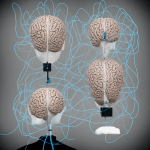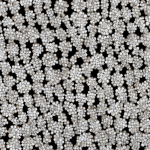Gluten-free diets are not just a rising trend or diet fad, but a necessary regimen for some. People with gluten-related disorders such as celiac disease or non-celiac gluten sensitivity (NCGS) can greatly benefit from a gluten-free diet (GFD). While the effects of gluten on celiac patients are well understood, what about those with NCGS? For those of you grappling with this question, this article will provide a comprehensive understanding of the benefits of a gluten-free diet for non-celiac gluten sensitivity.
Exploring Non-Celiac Gluten Sensitivity (NCGS)
Non-Celiac Gluten Sensitivity is a controversial topic within the health and nutritional community. It’s a gluten-related disorder where symptoms similar to celiac disease occur, but without the associated damage to the small intestine. People with NCGS experience symptoms that range from bloating and stomach pain to headaches and fatigue after eating foods containing gluten.
A voir aussi : What’s the Best Way to Design a Space for Indoor Aquatic Pets?
Gluten, a protein found in wheat, rye, and barley, plays a fundamental role in the elasticity and texture of bread and other baked goods. However, for some people, the ingestion of this protein can cause an adverse reaction in their bodies. If you experience discomfort after eating products containing wheat or related grains, it may be due to NCGS.
The Gluten-Free Diet (GFD) and Its Impact on NCGS
A strict gluten-free diet is the primary treatment for managing the symptoms of NCGS. The gluten-free diet involves excluding all foods and products containing gluten. Common foods like bread, pasta, cereals, and beer, which contain wheat or other gluten-containing grains, are off-limits.
En parallèle : Can Technology-Driven Urban Farming Solutions Contribute to Food Security in Growing Cities?
However, a GFD does not mean you are confined to a life of bland meals. Fresh fruits, vegetables, meat, poultry, fish, eggs, and dairy products are naturally gluten-free. Many grains and starches such as corn, rice, and potatoes, are also gluten-free. Today, the market is flush with a variety of gluten-free products ranging from bread to desserts, which means you won’t miss out on your favorite meals.
Following a GFD can significantly reduce the symptoms associated with NCGS. On this diet, people often report an improvement in their overall health, reduced discomfort, and enhanced energy levels.
Choosing the Right Gluten-Free Foods
While adopting a gluten-free diet, it’s crucial to make informed food choices to ensure you receive balanced nutrition and maintain good health. Remember, not all gluten-free foods are created equal.
Some commercially available gluten-free products may be high in sugars and fats to compensate for the change in texture and taste due to the lack of gluten. This can inadvertently lead to weight gain and other health problems. Therefore, it’s important to read food labels and select healthier gluten-free options.
Moreover, the natural gluten-free foods like fruits, vegetables, and lean proteins are not only healthier, but they also provide essential vitamins and minerals to your diet. When it comes to grains, opt for whole grain gluten-free alternatives like quinoa, brown rice, or buckwheat for their added nutritional benefits.
The Role of Healthcare Professionals and Health Monitoring
While a gluten-free diet can help manage the symptoms of NCGS, it’s essential to consult healthcare professionals before making any significant dietary changes. Nutritional deficiencies are common in gluten-free diets, and regular health monitoring can ensure that you’re getting the necessary nutrients.
A dietician can provide personalized advice, tailored to your dietary needs, lifestyle, and food preferences, ensuring that your diet is not just gluten-free, but also balanced and nutritious. Regular check-ups with your healthcare provider can help monitor your health status and make necessary adjustments to your diet.
In conclusion, while adopting a gluten-free diet for NCGS can bring about significant improvements in symptoms and overall health, it is not a decision to be taken lightly. It requires careful planning, smart food choices, and regular health monitoring. But with the right approach, a gluten-free diet can open a new path towards healthier living for people with non-celiac gluten sensitivity.
The Link between Gluten-Free Diets and Weight Loss
The concept of weight loss is often associated with gluten-free diets. Some people believe that following a gluten-free diet can lead to weight loss, even if they don’t have celiac disease or gluten sensitivity. However, the relationship between gluten-free diets and weight loss is more complex than it may seem.
Firstly, it is important to understand that simply switching to gluten-free foods does not automatically lead to weight loss. Many gluten-free products on the market are high in sugars and fats, which can contribute to weight gain rather than loss. If weight loss is your goal, it’s essential to choose healthier gluten-free options such as fruits, vegetables and lean proteins, as well as whole grain gluten-free alternatives like quinoa, brown rice, or buckwheat.
Secondly, losing unnecessary weight could be a side effect of a gluten-free diet for people with NCGS. The diet helps to manage symptoms such as bloating, stomach pain and fatigue, which can indirectly aid in weight loss. However, this is a side benefit of the diet, not its primary goal.
Lastly, it’s worth noting that following a gluten-free diet for weight loss without having a diagnosed gluten-related disorder can carry risks. These include potential nutritional deficiencies and the potential loss of beneficial gut bacteria caused by a reduced intake of dietary fiber. Therefore, it’s always recommended to consult with healthcare professionals before starting a gluten-free diet for weight loss.
Gluten-Free Diets: A Path to Better Health for Non-Celiac Gluten Sensitivity
In light of the above information, it is clear that a gluten-free diet plays a crucial role in managing non-celiac gluten sensitivity. It can significantly reduce symptoms, improve overall health, and even aid in weight loss for those with NCGS.
However, it’s not just about eliminating gluten from your diet. It’s about making smart food choices, choosing naturally gluten-free foods like fruits, vegetables, lean proteins and whole grains, and avoiding processed gluten-free products that could be high in sugars and unhealthy fats.
Regular health monitoring is also crucial. Nutritional deficiencies can occur in a gluten-free diet. Regular check-ups with your healthcare provider can help identify any deficiencies and adjust the diet accordingly. Consulting with a dietician can also provide personalized advice tailored to ensure your diet is balanced and nutritious.
While a gluten-free diet requires careful planning and dedication, the benefits for those with non-celiac gluten sensitivity are undeniable. It opens a new path to healthier living, enhancing the quality of life for those affected.
In summary, a gluten-free diet is more than just a dietary trend; it’s a necessary lifestyle change for people with non-celiac gluten sensitivity. With the correct approach, it can lead to improved health, symptom management, and potentially weight loss. As always, consult with healthcare professionals and make informed choices when considering a gluten-free diet.











